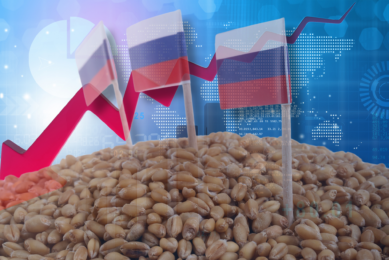Europe approves updated feed catalogue

Representatives of 39 EU Associations of the EU feed chain, including suppliers of feed materials, traders, compound feed manufacturers and farmers, welcome the official approval on 18 November 2010 of the updated Catalogue of feed materials that they submitted to the Standing Committee of the Food Chain and Animal Health.
The former catalogue, republished in March 2010 as the 1st version, was outdated with no significant changes since 1996.
In accordance with Regulation (EC) No 767/2009 on the placing on the market and use of feed, the EU legislator gave the representatives of the EU feed chain the mission to propose a more meaningful, up-to-date and comprehensive version of this Catalogue.
The main reason for this was to raise market transparency on feed materials currently in circulation on the EU market for users.
Remarkable joint effort
After 18 months of development, 39 EU organisations of the feed chain, often competitors in the market, joined efforts to deliver an inventory of more than 500 feed materials with clear descriptions.
After 18 months of development, 39 EU organisations of the feed chain, often competitors in the market, joined efforts to deliver an inventory of more than 500 feed materials with clear descriptions.
This will ensure full transparency for transactions between feed chain operators, as well as appropriate labelling for end users of feed materials, EU citizens and the public authorities.
This success story proves that organisations of the feed chain can work together in an efficient manner in close cooperation with public authorities, in a so-called co-regulation initiative.
Voluntary instrument
The Catalogue of feed materials is not exhaustive; feed materials not listed in the Catalogue may be placed on the EU market and used.
The Catalogue of feed materials is not exhaustive; feed materials not listed in the Catalogue may be placed on the EU market and used.
However, in that case, the representatives of the EU feed business operators remind operators placing such feed materials on the market that they shall notify them through the online register feed materials.
The catalogue remains a voluntary instrument, however feed business operators shall comply with the labelling requirements laid down in the catalogue when they use the terms of the catalogue.
Further steps are required before EU operators of the feed chain can take full benefit of this Catalogue, and they include the translation into the EU community languages by the EU Commission services and the scrutiny by the European Parliament, which is expected to take approximately 6 months.
Major changes
The old list of feed materials contained less than 200 entries. The new Catalogue will include descriptions of 64 qualifying transformation processes of feed materials (currently only 17 processes, which are essentially used to treat feed, are listed) and almost 600 well-defined feed materials.
The old list of feed materials contained less than 200 entries. The new Catalogue will include descriptions of 64 qualifying transformation processes of feed materials (currently only 17 processes, which are essentially used to treat feed, are listed) and almost 600 well-defined feed materials.
Furthermore, the new Catalogue clarifies many borderline cases of products whose status has been unclear for decades – a situation causing disruptions to the internal market.
The rules on the marketing of feed materials and compound feed are established in EC Regulation 767/2009
The Commission has adopted several acts in application of feed law:
Catalogue of feed materials
Revision of the tolerances for analytical constituents











